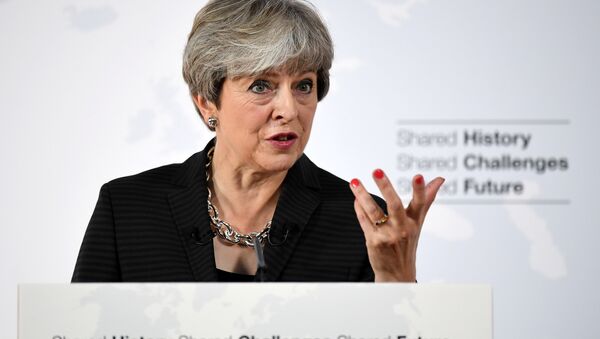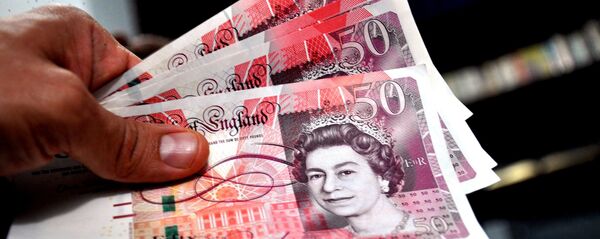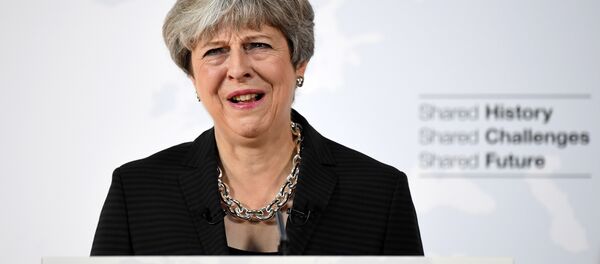In a speech in Florence, UK Prime Minister Theresa May asked the EU for a further transition period after Brexit, during which London would like to retain current trade terms and financial commitments to the EU budget. Her speech was aimed at kick-starting negotiations, which have stalled amid disagreements over issues such as the UK's remaining budget commitments and the right of EU citizens to remain in the UK.
May's suggestion for a further two-year transition period to follow the existing two-year Brexit deadline that runs out in March 2019, was a "surprising message" from the UK Prime Minister, Thorsten Polleit, Honorary Professor of Economics at the University of Bayreuth and co-founder of the Alternative Investment Fund, told Radio Sputnik.
"The kind of divorce from the EU is quite a complex undertaking. It will take time and resources and presumably the British Prime Minister sees it is necessary to have that kind of transition period. However, it underlines that the UK is about to leave the EU," Polleit told Sputnik.
A longer timeline for the Brexit process would offer some more certainty to UK businesses anxious about the effect of losing free market access and EU citizens in the UK who are uncertain about their future.
It must be remembered that the EU is trying to "slow down the process and give the UK a hard time," because it is "quite embarrassing" for the EU project that one of the largest participants has decided to leave, Polleit said.
The EU wants to "prevent the Brexit from being a very successful precedent, which I think it will be in the end. I think it will give the UK room for maneuvering to set up a very free-trade oriented set-up, giving it a competitive advantage in the long-term over the EU."
"The EU is actually trying to slow it down, make it very difficult and costly for the UK. Also, in order to deter other countries from playing with the idea of also leaving the EU."
The EU has become a "political superstate," whose chances of survival are "relatively small."
A better model for the EU would be as a free trade area in which nation states compete against each other in terms of lower taxes and favorable conditions for doing business, Polleit said.
"I think over the long term, the EU will turn toward a more free trade area organization. I think the idea of a European superstate cannot be realized."
"That would be for the benefit of the UK as well as the people of Europe," Polleit said.
"The European model as it stands won't survive. It is pursuing the idea of bringing about a European superstate, to basically do away with national sovereignty and to set up a central power unit in Brussels and that is not going to work. I think the EU has only one chance, and that is moving back toward this so-called free trade area organization."




